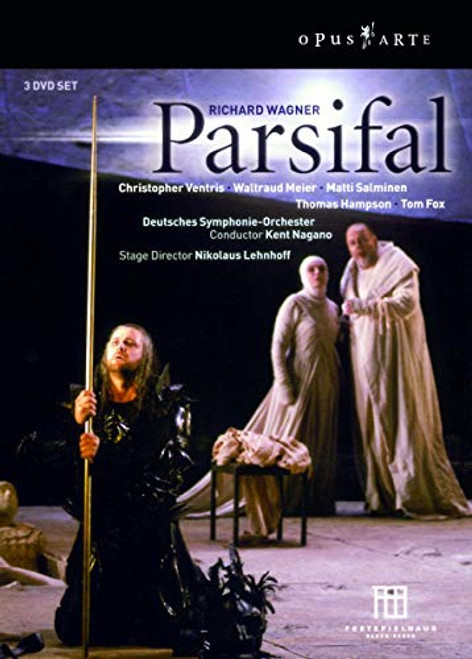Product Description
In the final part of Wagner's epic cycle, Der Ring des Nibelungen, Siegfried's world descends into falsehood and betrayal before his cursed life is ended by a single spear. Fate ignites the final conflagration, which sets the world to await its new beginn
Amazon.com
Götterdämmerung is the last of the four operas of Wagner's
Ring cycle, the one where the mythic tale of greed and power comes to its fiery climax. The opening Prologue begins with the Norns weaving their rope of fate, a luminous cable that advances producer Harry Kupfer's vision of the cycle as a fable of man's greed and rampant technology triumphing over the natural world. The great ash tree that dominated the stage in the early operas has now dwindled into a barely recognizable stump. The grid backdrop, upon which lighting and projections play, leavens the darkness of the stark stage. Siegried journeys to the kingdom of the Gibichungs, ruled by the siblings Gunther and Gutrune. Their half-brother, Hagen, son of the Nibelung Alberich, has inherited his father's obsession with the ring. Hagen pulls the plot strings that ultimately lead to Siegried's death and the fiery end of Valhalla.
As in Siegfried, producer Harry Kupfer populates the stage with symbolic props that recall industrial artifacts, using lighting and projections to create moods and amplify emotions and the narrative. The Gibichung rulers are garbed in 1930s-style suits and gowns, the evil Hagen in black leather. The climax of the opera (and of the cycle), the destruction of Valhalla and the return of the ring to the Rhine, is impressive. The stage rear is seemingly engulfed in flames, chaos reigns, the ring crumbles into dust, and in the midst of all this we see a pair of children, huddled together staring out into a new future--the sole ray of hope in Kupfer's tragic vision.
Musically, Götterdämmerung, like its predecessors in this Barcelona production, has strengths and flaws. Fortunately, Kupfer's interpretation places Brünnhilde and Hagen at its center and the singers are well up to the task. Deborah Polaski's final scene, so critical to any performance of the cycle, is excellent, the voice warm, the emotions palpable. Her moving performance here is ample compensation for the touch of vocal hardness she displays in the opening scenes. As Hagen, the veteran bass Matti Salminen offers a great portraya
Wagner - Gotterdammerung Treleaven Polaski Salminen Struckmann Matos von Kannen de Billy Barcelona Opera
Was:
$100.10
Now:
$50.05
- SKU:
- UTW66786
- UPC:
- 809478009139
- Condition:
- New
- Availability:
- Free Shipping from the USA. Estimated 2-4 days delivery.







